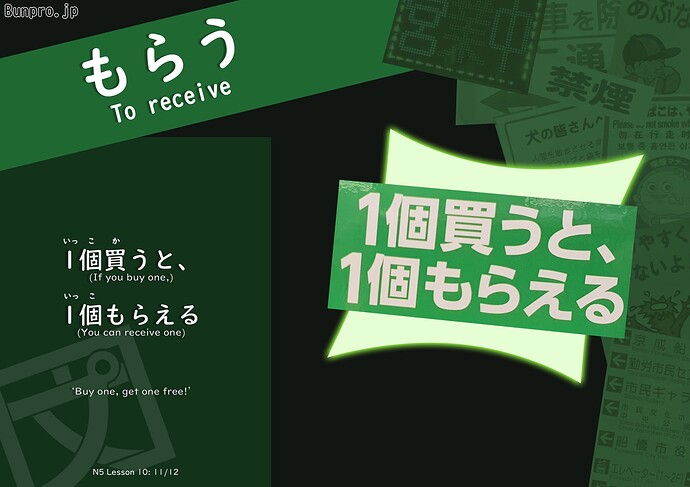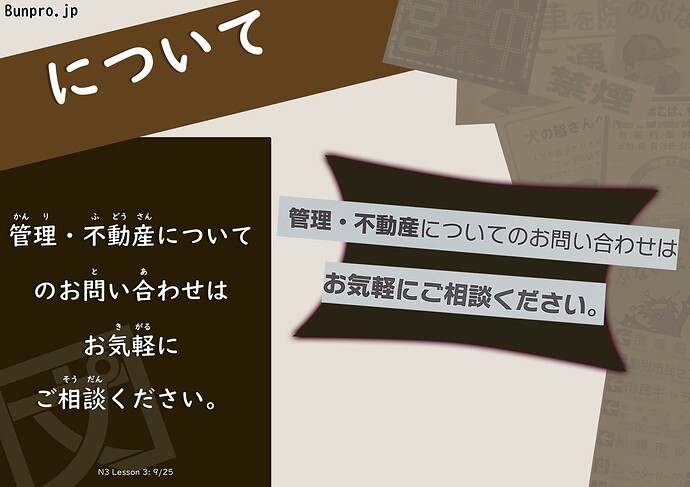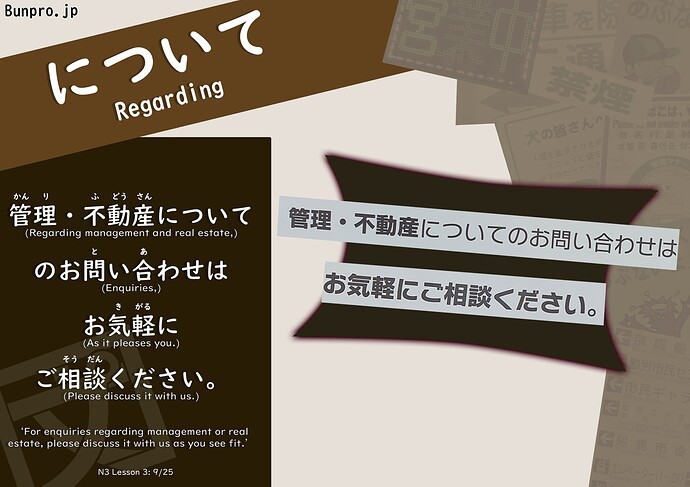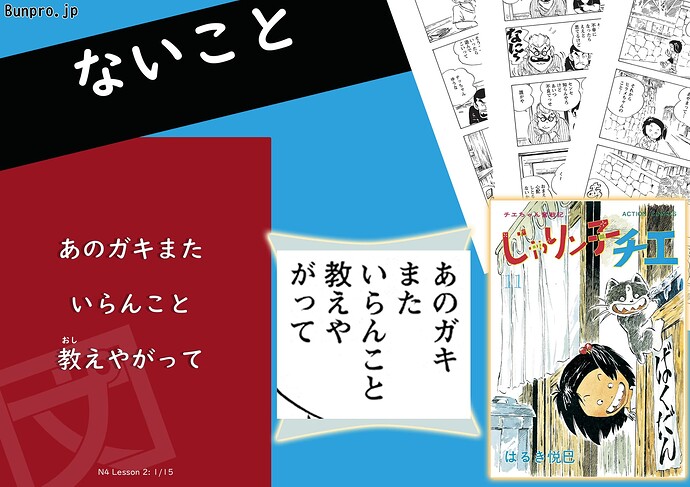Well, I wasn’t planning on joining in on these yet, but I’m a sucker for participation medals 
Translation
管理不動産についてのお問い合わせはお気軽にご相談ください。
管理 = Control; Management
不動産 = Real estate
管理不動産 = Managed Real Estate
について = Concerning; About; Regarding
の = possessive
お問い合わせ = Enquiry; Inquiry (note : Polite language)
は = topic marker
お気軽 = 1. Carefree; Buoyant; Lighthearted; Sprightly
- Ease
に = particle [for (purpose) use-case]
ご = honorific / polite / humble prefix
相談 = Consultation; Discussion; Discussing; Asking (somebody) for advice
ください = Please (give me); Please (do for me)
Rough = Please feel at ease to contact us with inquiries about managed real estate.
Natural = Please feel free to contact us for inquiries about managed real estate.











